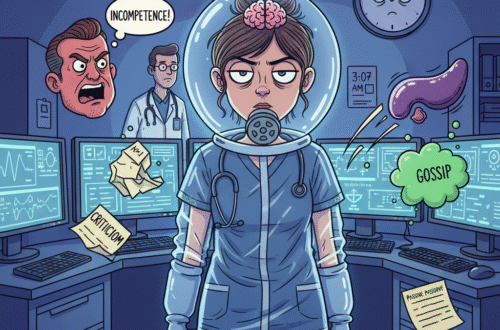For most people, sleep is a simple rhythm of lying down at night and waking up in the morning. But for nurses, doctors, and healthcare workers, quality rest is far from simple. Long hours, rotating schedules, and high-stress environments disrupt the body’s natural circadian rhythm, leading to chronic fatigue and burnout.
This guide explores essential sleep hygiene tips for nurses and shift workers designed to improve rest, restore energy, and enhance patient safety. After all, you can’t care for others effectively if you’re constantly running on empty.
Why Sleep Matters in Healthcare
In healthcare, restorative sleep isn’t a luxury—it’s a necessity. Without it, performance and safety are compromised.
Reaction Time: Slower responses in emergencies increase risks.
Cognition: Charting errors and memory lapses become more likely.
Mood: Irritability and compassion fatigue escalate.
Physical Health: Weakened immunity and cardiovascular strain take a toll.
A well-rested nurse or doctor isn’t just sharper—they’re more empathetic, patient, and resilient.
Keywords: importance of sleep for nurses, nurse burnout prevention, healthcare fatigue solutions
Unique Sleep Challenges for Healthcare Workers
Healthcare professionals face distinct sleep struggles:
Night Shifts: Sleeping during the day fights the body’s natural rhythms.
Split Shifts: Rotating between day and night schedules confuses the internal clock.
Long Hours: 12–16-hour shifts limit recovery.
Adrenaline Carryover: Stress from emergencies makes it difficult to unwind.
Noise & Family Life: Household activity disrupts daytime rest.
Keywords: circadian rhythm disruption, sleep problems in healthcare, nurse fatigue challenges
7 Essential Sleep Hygiene Tips for Shift Workers
1. Create a Sleep Sanctuary
Design your bedroom for rest: blackout curtains, a white noise machine, and a cool room (65–68°F). This signals your body that it’s time to recharge.
2. Use Light Strategically
Expose yourself to bright light during your commute to stay alert. Wear sunglasses on the way home, and limit screen time 30 minutes before bed to encourage melatonin production.
3. Stick to a Sleep Ritual
Consistency matters. A short routine—shower, journaling, or stretching—helps your brain transition into rest mode.
4. Nap Like a Pro
Take 20–30-minute power naps during breaks or longer 90-minute naps before your shift. Avoid scrolling on your phone late at night (“revenge bedtime procrastination”).
5. Manage Caffeine Intake
Consume coffee early in your shift. Avoid caffeine near the end—its six-hour half-life can keep you awake when you need rest.
6. Communicate with Your Household
Set boundaries with family or roommates. Use a shared calendar and “do not disturb” signs to protect your rest time.
7. Try Sleep Aids Thoughtfully
Natural remedies like chamomile tea, valerian root, or melatonin can help. Avoid dependency on prescription aids unless prescribed.
Keywords: night shift sleep tips, nurse sleep rituals, caffeine management for nurses, sleep aids for healthcare professionals
Quick Wins: On-Shift Energy Hacks
Even with strong sleep hygiene, fatigue can strike mid-shift. Try these nurse energy hacks:
Hydration: Drink water before coffee.
Movement Breaks: Stretch every couple of hours.
Healthy Snacks: Keep protein-rich foods on hand to avoid sugar crashes.
Laughter & Connection: Humor with coworkers helps reduce stress and boost energy.
Keywords: energy hacks for nurses, fatigue solutions for healthcare workers, staying alert on night shifts
Final Thoughts
Sleep challenges are inevitable in healthcare, but burnout doesn’t have to be. By practicing intentional sleep hygiene for nurses and healthcare workers, you can recharge between shifts, protect your health, and improve patient safety.
Remember: the best way to care for others is to first care for yourself.






I constantly emailed this blog post page to all my contacts, for the reason that if like to read it after that my friends will too.